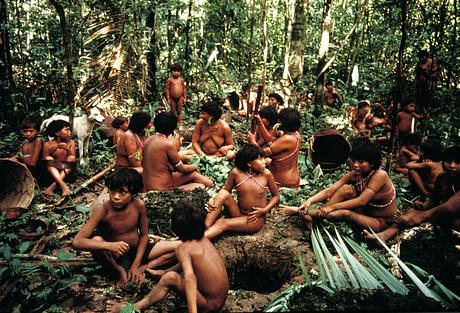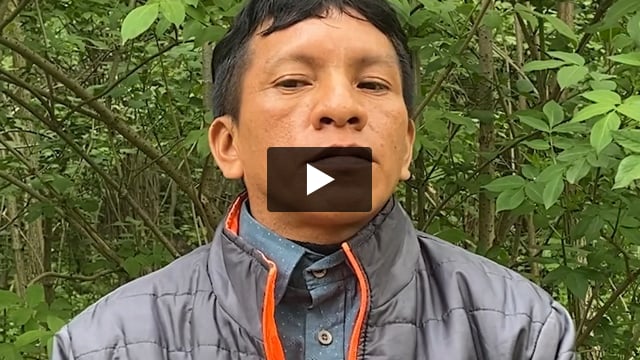Serious risk of attack by miners on uncontacted Yanomami in Brazil
September 30, 2021
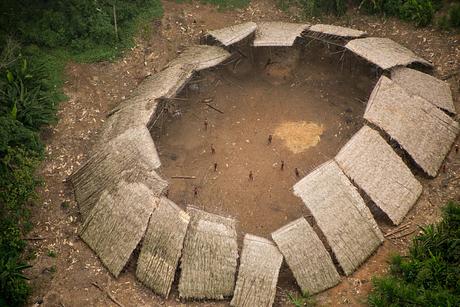 © Guilherme Gnipper Trevisan/FUNAI/Hutukara
© Guilherme Gnipper Trevisan/FUNAI/HutukaraThis page was last updated in 2021 and may contain language which is now outdated.
A community of around 100 uncontacted Yanomami is at serious risk of attack from goldminers who are working only 12km from their yano (communal house). Another larger mining camp is operating 42 km away.
The danger is graphically illustrated by a series of satellite images taken between 2020 and 2021, which reveal the air strips supplying the illegal mining camps, and increased deforestation due to mining operations.
Satellite photos reveal shocking destruction at JUST ONE of the hundreds of illegal gold mining sites now ravaging the Yanomami territory.https://t.co/7v9u5u1Dqw#ForaGarimpoForaCovid#MinersOutCovidOut
CNES / Airbus DS, produced by Earthrise. pic.twitter.com/A7RwbBfcQL— Survival International (@Survival) June 7, 2020
The proximity of the nearest mining camp means a dangerous encounter between Yanomami and miners is imminent and will expose this vulnerable community to diseases like Covid-19, flu and malaria against which they have no immunity. Many are likely to die as a result.
Networks of trails radiate from Yanomami communities into the forest and are used daily by families to access streams for fishing, and forest gardens to gather fruit and vegetables. Yanomami hunters can easily travel more than 12 km along the forest trails on hunting trips which sometimes last days.
The goldminers are likely to be armed so there is a high chance that an encounter could turn violent. Last year, Davi Kopenawa, President of Hutukara Yanomami Association warned that the uncontacted Yanomami, known as Moxihatetea, could “soon be exterminated” and “have fled so many times that now they have nowhere else to flee.”
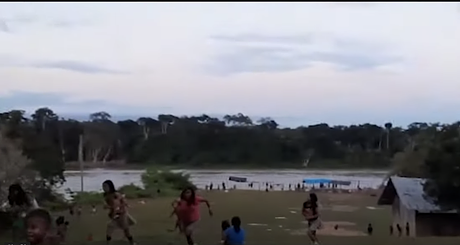
In 2020 miners killed two Yanomami and throughout this year heavily armed miners have launched numerous armed attacks on Yanomami communities.
FUNAI, the government’s Indigenous affairs department, has known that miners are working dangerously near the uncontacted Yanomami for several years. In an act of criminal negligence, it closed down its protection post in 2017 leaving the community totally exposed. A year later, Hutukara reported that miners were suspected of killing two uncontacted Moxihatetea.
The protection post only reopened at the end of 2020 and FUNAI says it has taken measures to close down the mining operations. However, these have not been effective and the uncontacted Yanomami continue to be perilously exposed.
The Yanomami Territory is overrun by 20,000 miners who use powerful dredges and are rapidly destroying river beds and large tracts of forest. They separate the gold with mercury, which contaminate the fish and water consumed by the Yanomami – some communities now have lethal levels of mercury in their bodies. Malaria-carrying mosquitoes are breeding rapidly in the pools of water formed by the mining pits, and many miners are infected with malaria and spreading the disease among the Yanomami.
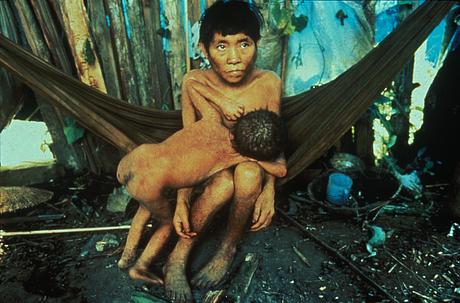 © Antonio Ribeiro/Survival
© Antonio Ribeiro/Survival
Mining operations are well-funded, and there is evidence that criminal gangs such as the Primeiro Comando da Capital (PCC) and drug traffickers have penetrated the territory. Some recently posted a video online boasting of their exploits.
“Operação Omama”– a joint operation by the federal police, army, FUNAI and other government agencies was launched on 29 June. Some planes, dredges and fuel have been seized. However, this is the tip of the iceberg. Earlier this month Yanomami protested in the state capital of Boa Vista and demanded the government fund long term operations to close down all mining operations, expel all miners from their territory and commit to a viable protection plan.
Congresswoman Joenia Wapichana, Dario Kopenawa Yanomami and other Indigenous leaders from Brazil met with Michelle Bachelet the UN High Commissioner for Human Rights to discuss the government’s failure to uphold their constitutional rights. In her report to the UN Human Rights Council, she said: “In Brazil, I am alarmed by recent attacks against members of the Yanomami and Munduruku peoples by illegal miners in the Amazon.”
Scars in the Forest – a report by by Hutukara Yanomami Association and Wanasseduume Ye’kwana Association (Seduume) revealed the area of forest destroyed by the miners increased by 30% in 2020 and warned of the impending genocide of the uncontacted Moxihatetea.
Survival has written to the Brazilian authorities about the safety of the uncontacted Moxihatetea, urging them to expel the miners before it is too late.


